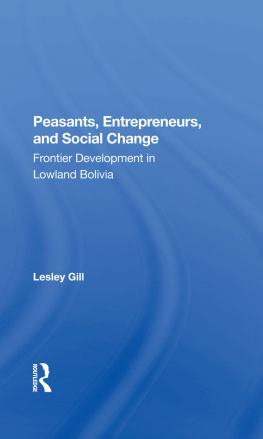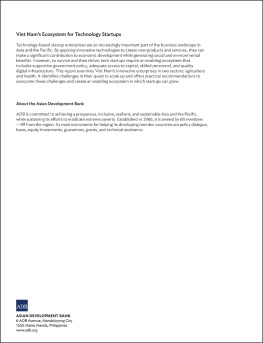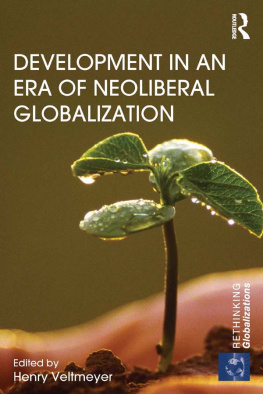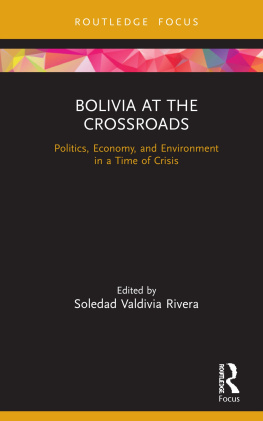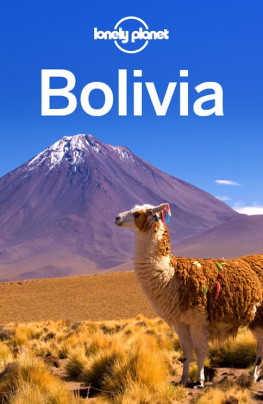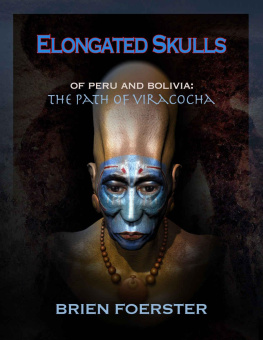Peasants, Entrepreneurs, and Social Change
About the Book and Author
Following the 1952 revolution in Bolivia, both state and international aid agencies channeled capital and technology to regional elites for the development of large-scale cash-crop agriculture in the lowland frontier. In this book, the author examines the contradictory path taken by capitalist development in the region over the last thirty years, with a special emphasis on the role played by rural settlers.
Focusing on the establishment of frontier communities in the west-central Santa Cruz department, Dr, Gill analyzes how the cultivation of sugarcane and the growth of commerce led to changes in the composition of communities and to a reorganization of social and productive relationships. Expansion of the regional economy was accompanied by extensive migration into the region, and people from diverse geographical, economic, and cultural backgrounds were incorporated into an expanding web of commercial relationships as seasonal laborers, subsistence cultivators, and small-scale entrepreneurs. Their attempts to limit the effects of the boom-bust nature of the economy while taking advantage of new economic opportunities shaped the character of the new frontier society.
Lesley Gill received her Ph.D. in anthropology from Columbia University. She was a visiting fellow at the University of East Anglia in 1984-1985 and is currently affiliated with the Facultad Latinoamericana de Ciencias Sociales in La Paz, Bolivia.
Peasants, Entrepreneurs, and Social Change
Frontier Development in Lowland Bolivia
Lesley Gill
First published 1987 by Westview Press, Inc.
Published 2019 by Routledge
52 Vanderbilt Avenue, New York, NY 10017
2 Park Square, Milton Park, Abingdon, Oxon OX14 4RN
Routledge is an imprint of the Taylor & Francis Group, an informa business
Copyright 1987 Taylor & Francis
All rights reserved. No part of this book may be reprinted or reproduced or utilised in any form or by any electronic, mechanical, or other means, now known or hereafter invented, including photocopying and recording, or in any information storage or retrieval system, without permission in writing from the publishers.
Notice:
Product or corporate names may be trademarks or registered trademarks, and are used only for identification and explanation without intent to infringe.
Library of Congress Cataloging-in-Publication
Data Gill, Lesley.
Peasants, entrepreneurs, and social change.
(Westview special studies on Latin America and the Caribbean)
Bibliography: p.
Includes index.
1. Agriculture--Economic aspects--Bolivia--Santa Cruz (Dept.) 2. Santa Cruz (Dept.)--Commerce. 3. Sugarcane industry--Bolivia--Santa Cruz (Dept.) 4. Land Settlement--Bolivia--Santa Cruz (Dept.) 5. Peasantry--Bolivia--Santa Cruz (Dept.) 6. Agriculture, Cooperative--Bolivia--Santa Cruz (Dept.) 7. Social change--Bolivia--Santa Cruz (Dept.) I. Title. II. Series.
HD1870.S25G54 1987 303.4'0984'3 86-28207
ISBN 13: 978-0-891-58870-2 (hbk)
During the course of my research in Bolivia, I benefited from the support and encouragement of many people. My greatest debt is to the peasants of northern Santa Cruz, particularly those from the communities of Nuevo Mundo, Rio Viejo, and Paichanetu as well as the Central de Cooperativas Agropecuarias Mineros (CCAM). These men and women opened their homes to me, and they gave me hours of their time, despite the tasks demanded of them, to recount their experiences, their hopes and their frustrations. To them and especially to a few close friendsIber Barriga, Adan Algaranaz, Regina Montero de Algaranaz, Sergio Quintela, Susano Terceros, Ramona de Mendoza, and Carlos MendozaI offer my warmest thanks. This book is dedicated to them.
I am also thankful to several people for their help and encouragement at different times and in different places. Phil Blair, Edith Klein, Lucas de Conik, Dudley Conneely, and Mary Revollo de Conneely were gracious hosts in Bolivia and always willing to help. I owe much, personally and intellectually, to my friends Susan Lowes, Ann Zulawski, Maria Lagos, Donna Plotkin, and Marc Edelman for providing support, ideas, and criticism over the last ten years. In addition, I have also benefited from the excellent advice and guidance of several scholars. Xavier Albo offered useful suggestions and a much-appreciated sense of humor. June Nash prodded me to finish, and without her support and involvement in my work, I could never have carried this project through to the end. Herb Klein's knowledge of Bolivia enriched my graduate studies at Columbia University, and Lambros Comitas and George Bond played important roles in my training as an anthropologist. Vanalyn Green provided important editorial assistance, and Jose Bayro helped with the maps. Finally, I am grateful to my parents, Joan and Herbert Gill, for their patience and support and to Rodrigo Munoz-Reyes, who shared with me the joy of discovering northern Santa Cruz.
It would have been impossible for me to undertake research in Bolivia without financial assistance from the Inter-American Foundation, Columbia University, and the I.I.E. Fulbright Fellowship Program. These institutions all made contributions to support my doctoral dissertation that is the basis of this book, and their generous assistance is gratefully acknowledged. I am particularly grateful to Kevin Healy of the Inter-American Foundation for his interest in my research and his encouragement while I was in Santa Cruz.
In addition, I benefited from a Leverhulme USA/Commonwealth Visiting Fellowship in the School of Economic and Social Studies at the University of East Anglia (Norwich, England). Through this assistance, I had time to work on the manuscript and explore new ideas. The experience was not only academically valuable, but also personally rewarding. John and Marie Corbin, Rosemary Crompton, Kay Sanderson, Malcolm Moseley, Rhys Jenkins, Ruth Pearson, Juan Sanchez, and especially Lucila Haynes enriched my stay in Norwich and without them I would have written a much weaker study. I will always remember their care and their friendship.
The study, then, has been a collective effort that has involved many people. They are all responsible for the insights it might yield, and I thank them once again for their patience, support, and guidance.
Lesley Gill
This book is a study of peasants and entrepreneurs in the frontier of eastern Bolivia. It examines the contradictory path that capitalist development took and the role rural settlers played in this process. It is specifically about the frontier communities in west-central Santa Cruz department and the evolution of peasant political consciousness over a thirty year period of economic expansion and contraction. When sugarcane cultivation was introduced and commerce was stimulated, a drastic reorganization of social and economic relationships occurred. Families were forced to respond to capitalist development with a combination of subsistence strategies that usually involved both wage earning and subsistence cultivation. More broadly, then, this book is an account of people caught in the throes of profound social trans formation.
Following the 1952 revolution both the state and international-aid agencies channeled capital and technology to regional elites for the development of large-scale cash-crop agriculture. This support was the basis for the subsequent growth of a powerful regional bourgeoisie. The expansion of the regional economy also initiated a migratory process; people from diverse geographical, economic, and cultural backgrounds were incorporated into an expanding web of commercial relationships as seasonal laborers, subsistence cultivators, and small-scale capitalist entrepreneurs. The attempts of these people both to limit the effects of capitalist development on their daily lives and to take advantage of new economic opportunities shaped the character of the new frontier society. Their struggles are the central focus of this book.

